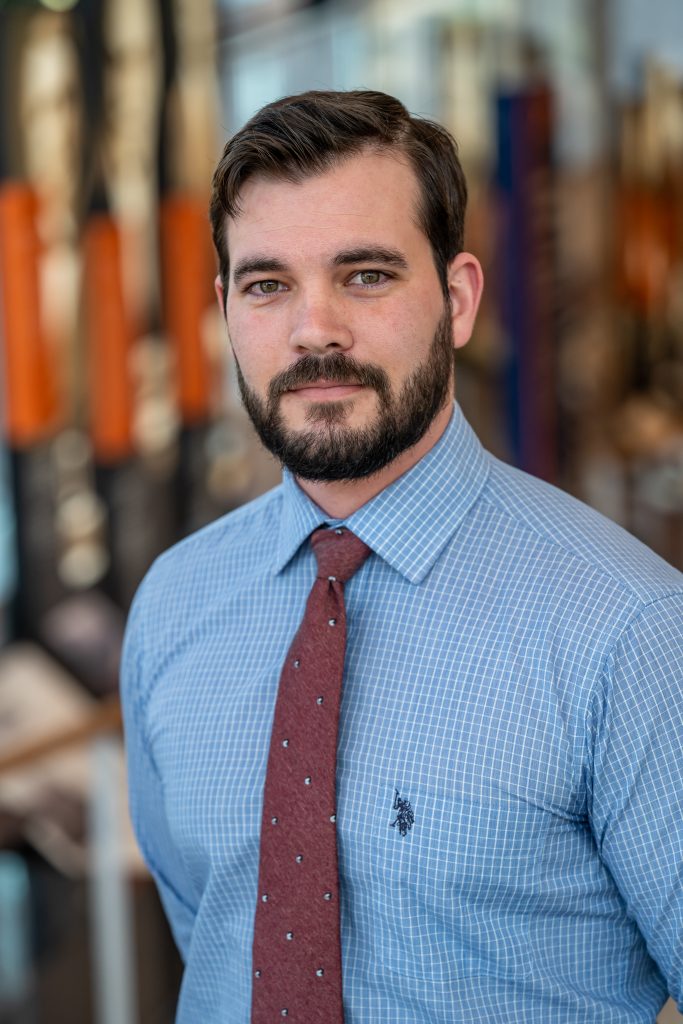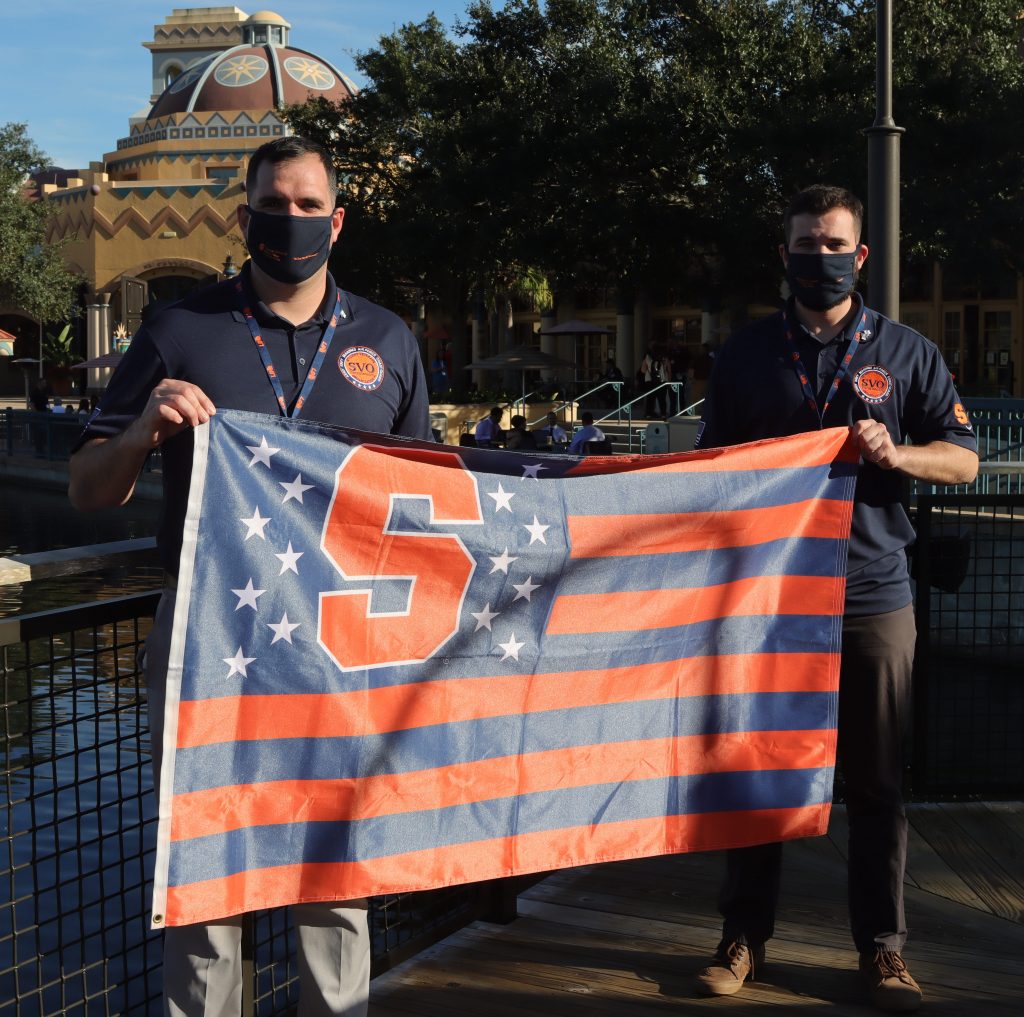The opportunity to travel the world is an enriching experience that many college students take advantage of through semester abroad programs every year. There are far fewer students who get to have that opportunity earlier in their education though. Adrian Byrne, a student veteran in the College of Law at Syracuse University, spent every other summer in his mother’s home country of Hungary. Eventually he would have the opportunity to study abroad in Holland for a year, an experience that would aid him in the travel-filled journey he would set out on after high school.
“I grew up in Redding, Pennsylvania and had a pretty typical childhood,” says Byrne, who served in the U.S. Marine Corps as an infantryman. “We would spend every other Summer in Hungary though, and so I spent my sophomore year in high school abroad in Holland.”
When he returned to the United States the following year, Byrne decided to take a class with his school’s Junior Reserve Officer Training (JROTC) program. Designed to instill the values of citizenship, service to the United States, and personal responsibility, JROTC classes are offered by every branch of the U.S. military at more than 3,200 secondary schools.
“I started JROTC during my junior year of high school, and that’s when I first started considering the military. It didn’t’ take long for me to decide that the military is what I wanted to do though,” says Byrne, who decided to enlist in the U.S. Marine Corps after high school graduation. “I signed up when I was 17, which required my parent’s permission, and they required that I speak with a recruiter from every branch. I picked the Marine Corps ultimately because it was the most challenging and it seemed the most intimidating…so it appealed to me the most.”
Byrne initially became an infantryman after attending boot camp at Marine Corps Recruit Depot Parris Island, in South Carolina. Afterwards, he attended follow-on training at the School of Infantry located near Jacksonville, North Carolina. After his training he would find himself assigned to 2nd Battalion, 6th Marine Regiment at nearby Camp Lejeune. During his enlistment he went to South Korea for bilateral training exercises with South Korea’s military, and a six-month rotation with his unit in Okinawa, Japan.
He ended his time in the Marine Corps with his battalion’s scout sniper team and made another deployment, this time with a Marine Expeditionary Unit, the Marine Corps’ premiere element for force projection in the murky zones between sea and land. One of the things that he distinctly remembers from that time is when he was deployed on the USS Kearsarge (LHD-3), a Wasp-class amphibious assault ship.
“Whenever we did crossings in places like the Suez Canal, or the Strait of Hormuz, we would help do security for the ship from the upper levels. Sometimes the Iranians would have dozens of their boats surrounding us, following us, and probably trying to provoke us,” said Byrne.
Byrne had originally planned to do twenty years in the Marine Corps, the amount of service time required for full retirement benefits. As he was nearing the end of his first enlistment contract he was trying to weigh all of his options, one of which included getting out and going to college.
“At some point during the deployment I learned that my unit was going to do the exact same deployment again the next year, and it just wasn’t that interesting to me,” Byrne said. “I considered going into Counter Intelligence, but ultimately I decided to get out so I could earn my degree. At that time I was planning to go back into the military as an officer.”
Byrne ended up attending Florida Gulf Coast University, in Fort Meyers, where he earned a bachelor’s degree in criminal justice and legal studies. Over the years of his undergrad his plans changed from going back into the military to looking at a career in law enforcement. During his senior year of college he started considering law school though. While looking at different law schools around the country he spoke with a friend who was enrolled at Syracuse University for a graduate program.
“She told me that Syracuse was a great place for veterans, and at the time I had started to consider going to law school. I looked at Syracuse’s law school along with several others, but I liked what I saw here with their support for veterans and ended up applying,” said Byrne.
Byrne’s first year at Syracuse University was during the COVID-19 pandemic that saw an end to in-person classes for the semester, so his exposure to the university’s veteran community was relatively limited. Byrne did manage to get involved with some activities with the law school though. He wound end up spending two semesters working with the Betty and Michael D. Wohl Veterans Legal Clinic, which provides representation to veterans and their families who are seeking benefits from the Department of Veteran Affairs, or upgrading a military discharge from the various military branches.
“I wasn’t the only veteran in the law clinic, but being a veteran gave me a great perspective, especially when speaking to clients and getting them to tell me their stories,” Byrne said. “That’s a big part of how we improve their claim, by getting their story and not just the medical records. Being a veteran, it made it a little easier for the clients to open up to me I think.”
The veterans legal clinic wouldn’t be his last opportunity for real-world experience while at Syracuse University, Byrne was also able to do an internship with the U.S. Department of Justice in the tax division. That experience over the summer gave Byrne an inside look at the complex and intricate world of law as it’s applied to taxes and financial transactions.
Byrne said the experience with the tax division was more enjoyable than he had anticipated. After the internship was over he began to shift his focus in where he wanted to apply himself after graduating from law school. After applying to several large companies that he thought would be ideal for him, he wound up landing an interview with PricewaterhouseCoopers, one of the Big Four accounting firms that offer services worldwide.
The interviews at PWC took multiple rounds, but after the initial interviews were over PWC called and wanted him to interview for another position with their international tax, rather than mergers and acquisitions.
“I turned around and interviewed for the international tax associate position, a couple of days after that I was offered the position,” Byrne said. “I accepted the offer the following week. It’s an accounting firm, not a traditional law firm, but I have a greater affinity for transactional work over litigation that, combined with my tax experience at the Department of Justice, motivated me to head in the direction of public accounting firms.”



